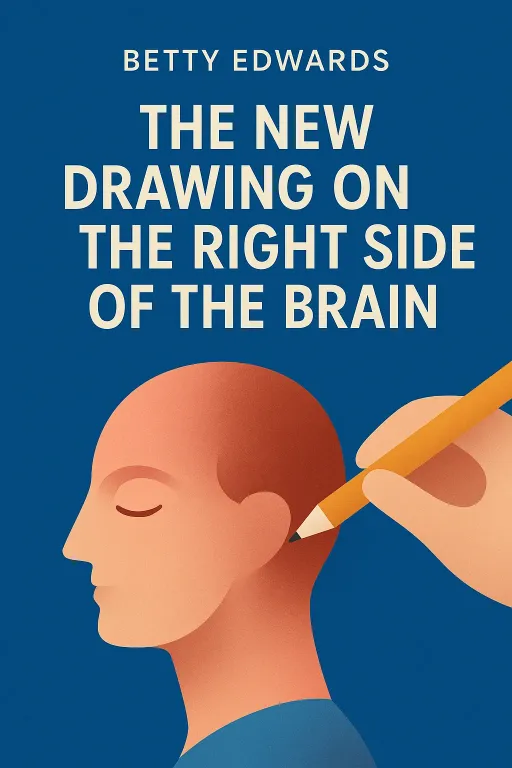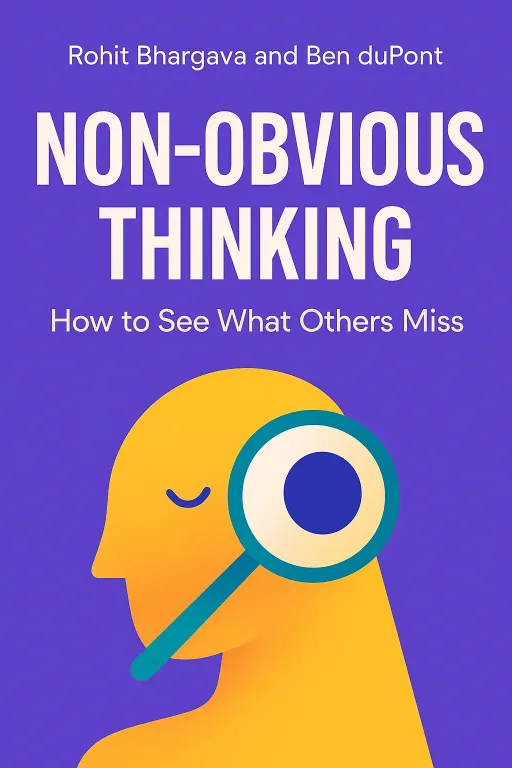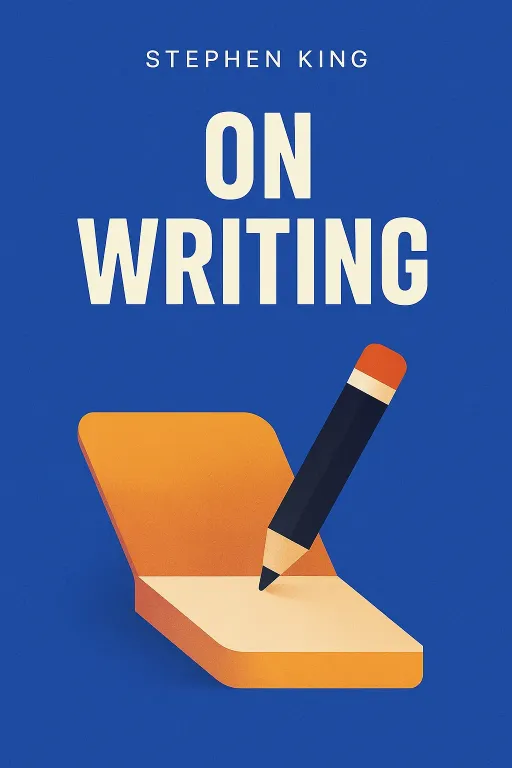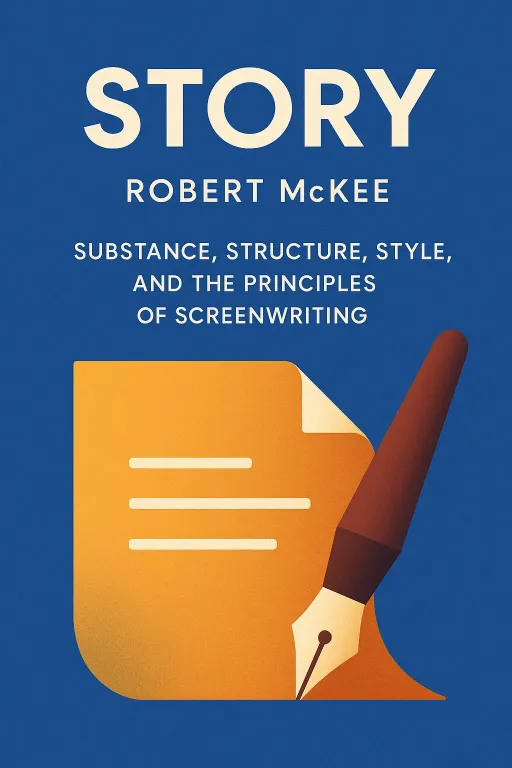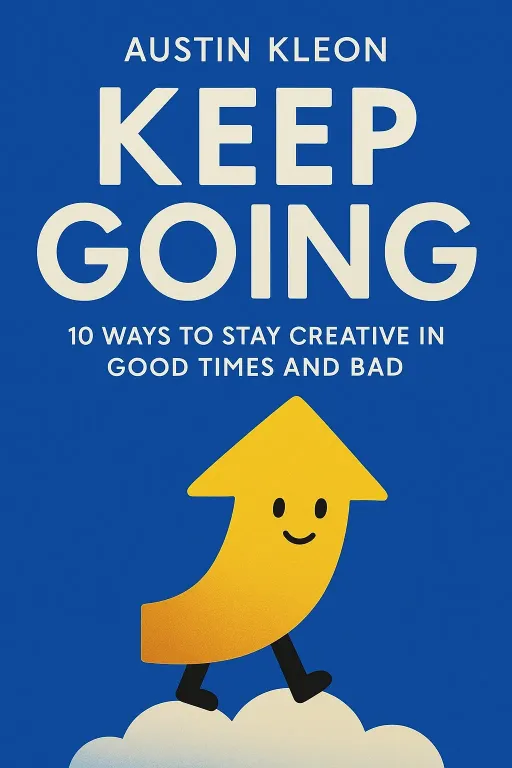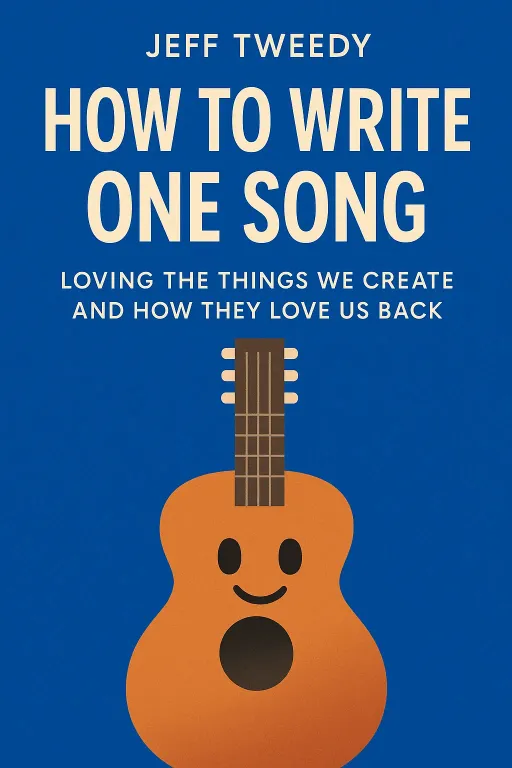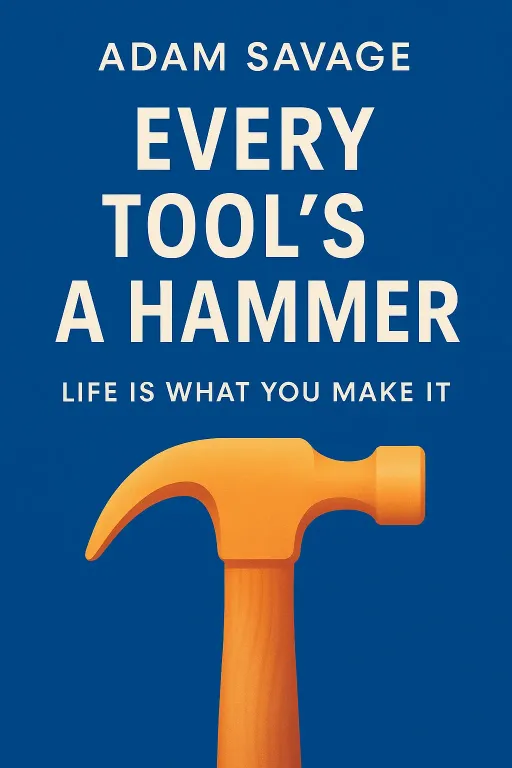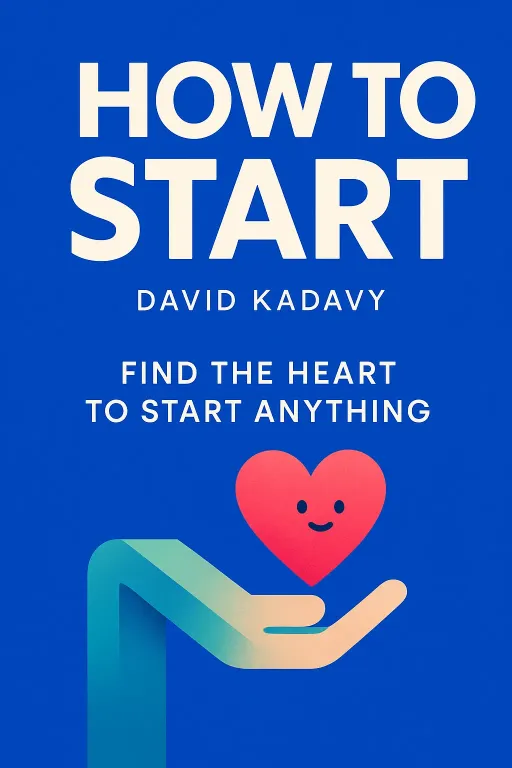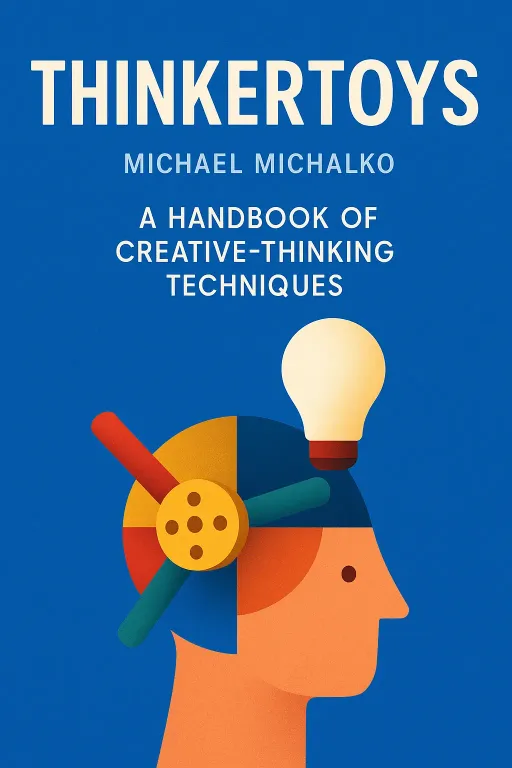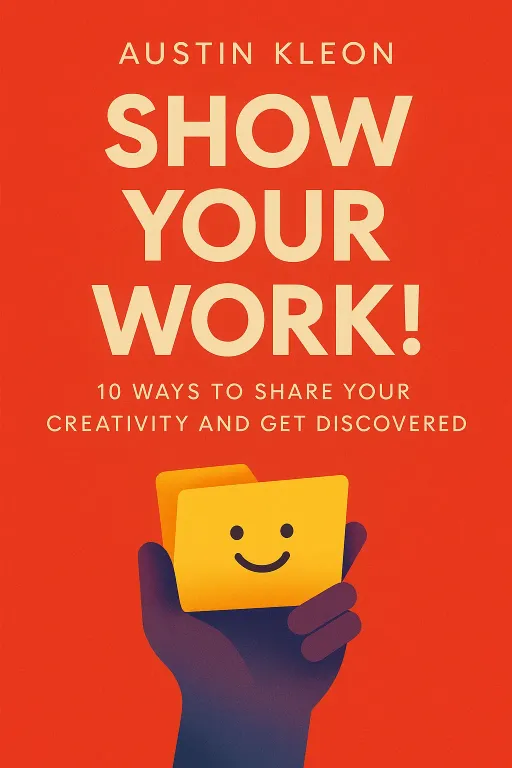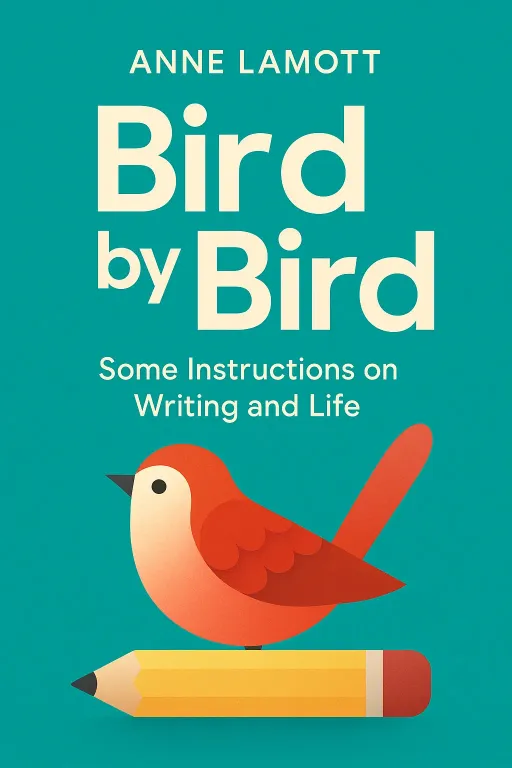
The Writer's Inside Job
13 minSome Instructions on Writing and Life
Golden Hook & Introduction
SECTION
Rachel: We’re all told to chase the dream. Get the book deal, hit the bestseller list, see your name in lights. But what if that finish line is a mirage? What if the very thing we’re chasing—publication, fame, validation—is actually a trap designed to make us miserable? Justine: And what if the secret to creating something truly meaningful isn't about having a grand, perfect vision, but about giving yourself permission to be absolutely, gloriously terrible at it first? It’s a bit like wanting to be a Michelin-star chef but being too afraid to burn the toast. You have to be willing to make a mess. Rachel: Exactly. Today, we’re diving into Anne Lamott’s classic, Bird by Bird. On the surface, it’s a book about writing, but if you read it closely, it’s really a guide to life, creativity, and sanity. We're going to explore it from two powerful angles. First, we'll challenge the myth of the successful writer and uncover why the real work has to be an 'inside job.' Justine: And then, we’ll get intensely practical with her famous 'bird by bird' method—a brilliant strategy for silencing that paralyzing inner critic, that horrible radio station in your head, and finally starting the work you were meant to do.
The Inside Job: Writing as a Spiritual Practice
SECTION
Rachel: Let's start with that first, really provocative idea, Justine. Lamott is almost ruthless in dismantling the dream of publication. She opens her classes by telling her aspiring-writer students, 'I have some bad news and some good news. The bad news is that you probably won't get published. The good news is that it won't solve your problems if you do.' Justine: That is such a brutal, but necessary, splash of cold water. It’s like a career counselor saying, ‘You can major in this, and you will get a job you wish you didn’t have. That’ll be one hundred and fifty thousand dollars, please.’ Lamott’s point is that so many people want the noun—'a published author'—without truly loving the verb—'to write.' Rachel: Precisely. They want the destination, but they hate the journey. And Lamott argues that this mindset is a recipe for disaster. She has this one story in the book that is just a perfect, gut-wrenching illustration of this. It's about her first book. Justine: Oh, this is the one. Brace yourselves, listeners. Rachel: So, she’s written this deeply personal book, a memoir about her father who was dying. It’s everything to her. She pours her soul into it, gets a book deal, and she is vibrating with anticipation. She imagines the glowing reviews, the calls from friends, the validation that will finally make her feel like she’s enough. Justine: She’s waiting for the gold medal. She’s convinced that once she has it, her life will be complete. It’s a feeling we all know, that belief that one big achievement will fix everything. Rachel: Exactly. So the publication date is getting closer, and she receives the first two pre-publication reviews. She’s expecting praise, but instead, they are just… savage. They don’t just dislike the book; they seem to dislike her. They call it sentimental, poorly written, a mess. Justine: It’s like posting a piece of your soul online and the first comment is, ‘Meh, 2 stars. Soul feels derivative and the pacing is off.’ It’s the writer’s ultimate nightmare. Rachel: It completely shatters her. She describes coping by drinking heavily and just wandering around telling strangers her story, this tale of woe. The very thing that was supposed to bring her happiness and fulfillment brought her to her knees. And that’s when the lesson lands for her, and for the reader. She writes, "I remember that if I wasn't enough before being asked to participate in this prestigious event, then participating wasn't going to make me enough. Being enough was going to have to be an inside job." Justine: That line is everything. It’s the core of the whole book. It reminds me of that great quote from the coach in Cool Runnings, of all places, who says, "If you're not enough without the gold medal, you won't be enough with it." Lamott is saying the same thing. Publication, success, praise… it’s all the gold medal. If your sense of self-worth is dependent on getting it, you’re building your house on sand. Rachel: And she realizes that the true reward was never the potential review or the sales figures. She has this beautiful quote later on where she reflects on the whole process. She says, "That thing you had to force yourself to do—the actual act of writing—turns out to be the best part." It wasn't the outcome; it was the process of showing up, of paying attention, of finding the words to describe her experience with her father. That was the gift. The rest was just noise. Justine: It’s a profound reframing. It shifts the goalpost from something external and uncontrollable—what a critic thinks, what the market wants—to something internal and completely within your power: the act of creation itself. It’s liberating, because you can’t control if you get published, but you can control whether you sit down and write today. Rachel: And she learned this from her father, too. He was a writer, and he told his students, "You might as well fall flat on your face as lean over too far backwards." He was encouraging them to be bold, to take risks, to not write timidly in the hopes of pleasing some imaginary judge. Justine: Because the judge is fickle. The judge might be having a bad day. The judge might hate memoirs about dying fathers. The external world is a battlefield, and as one writer famously said, a critic is often just someone who enters the battlefield after the war is over and shoots the wounded. You can’t stake your life on their opinion. Rachel: So the first big takeaway from Lamott is this radical act of self-reliance. The writing itself has to be the reward. The joy has to come from the discovery, the connection, the act of making sense of the world on the page. Everything else is a bonus, and a potentially dangerous one at that. Justine: It’s a spiritual practice, not a career move. The goal isn't to get somewhere, but to be somewhere—present, at your desk, with your own thoughts.
Bird by Bird: The Radical Act of Embracing Imperfection
SECTION
Justine: Okay, so if we accept that it's an inside job and not about the gold medal at the end, that still leaves us with the absolutely terrifying problem of the blank page. The blinking cursor is a tiny, digital void staring into your soul. And this is where Lamott gives us the advice that named the book, and it’s probably the most practical and compassionate advice ever given to a creative person. Rachel: It’s such a simple, beautiful story. She talks about her older brother, who was ten years old at the time. He had a massive school report due on birds. He had three months to do it. Justine: And like any sane human being with a three-month deadline, he waited until the night before it was due to start. Rachel: Of course. So he’s at the kitchen table, surrounded by a mountain of books—field guides, encyclopedias—and he is on the verge of tears. He’s completely paralyzed by the sheer scale of the task. He has to write about all the birds, and he doesn’t even know where to begin. Justine: It’s the classic creative panic. The project is so huge in your mind that you can’t even take the first step. It’s not just a bird report; it’s BIRDS, in all caps, a monolithic, impossible entity. Rachel: Exactly. And his father, the writer, comes over, puts an arm around his shoulder, and says the magic words: "Bird by bird, buddy. Just take it bird by bird." Justine: And there it is. It’s so simple, but it’s a masterclass in cognitive behavioral therapy. He’s teaching his son to break an overwhelming, abstract goal into a series of small, concrete, manageable tasks. You don’t have to write about all the birds right now. You just have to write about the robin. Then, maybe the blue jay. Bird by bird. Rachel: This idea is the antidote to perfectionism, which Lamott identifies as the primary enemy of all writers. It connects directly to her other famous piece of advice: you must, must give yourself permission to write "shitty first drafts." Justine: Ah, the sacred SFD. She says that the only way she can get anything written is by promising herself that the first draft will be absolutely terrible. She says, "Almost all good writing begins with terrible first efforts. You need to start somewhere. Start by getting something—anything—down on paper." Rachel: She describes her own first drafts as a child’s version, where she lets it all pour out. The characters are wooden, the plot is nonsensical, the dialogue is clunky. It’s a mess. But it exists. It’s on the page. It’s something she can work with. Justine: This is so critical because it separates two fundamentally different modes of thinking: the creative mind and the editorial mind. The creative mind is a playful, curious kid who wants to build a messy fort out of couch cushions. The editorial mind is the stern parent who walks in and says, ‘This is structurally unsound, the color palette is a disaster, and you’re getting crumbs everywhere.’ Rachel: A perfect analogy. And trying to do both at the same time is impossible. It’s like trying to drive a car with one foot slammed on the accelerator and the other slammed on the brake. You just create a lot of smoke and noise and end up going nowhere, completely burnt out. Justine: Lamott’s advice is to let the kid play first. Give the creative mind total freedom. Let it be shitty. Let it be embarrassing. Just get it down. The parent, the editor, can come in later and help clean up the mess. That’s the second draft, and the third, and the fourth. Rachel: She has this incredible quote about perfectionism that I think everyone needs to hear. She writes, "Perfectionism is the voice of the oppressor, the enemy of the people. It will keep you cramped and insane your whole life." She says it’s based on this obsessive belief that if you run carefully enough, hitting each stepping-stone just right, you won’t have to die. Justine: And her punchline to that is just perfect. She says, "The truth is that you will die anyway, and that a lot of people who aren't even looking at their feet are going to do a whole lot better than you and have a lot more fun while they're doing it." It’s such a liberating thought! Stop trying to be perfect. Just be present. Have some fun with it. Rachel: It’s about embracing the process, mess and all. She compares writing a first draft to watching a Polaroid develop. You take the picture, and at first, the image is a murky, indistinct blob. You can’t quite see what it is. But if you’re patient, if you just sit with it and watch, the details slowly start to emerge. The faces become clear, the background takes shape. You have to trust that the image will reveal itself in time. Justine: But you can’t see the final image if you never click the shutter. The shitty first draft is clicking the shutter. It’s capturing that first, messy, potential-filled blob. You can’t edit a blank page. You can only edit something that exists, no matter how flawed it is. Rachel: It’s a philosophy of action over contemplation. Stop planning the perfect novel and just write one terrible page. Stop outlining the perfect business plan and just make one phone call. Take it bird by bird.
Synthesis & Takeaways
SECTION
Rachel: So, when you put these two ideas together, you get a really powerful and compassionate framework for any creative work. First, you have this radical reorientation of your goal. Detach from the outcome, from the dream of publication or praise, and find the reward in the process itself. Make it an inside job. Justine: And once you’ve done that, once you’ve taken the pressure off, you give yourself the practical tool to actually do the work. You break the intimidating whole into manageable parts—bird by bird. And you give yourself the grace of imperfection by embracing the shitty first draft as a necessary, even beautiful, part of that process. Rachel: It’s a philosophy that replaces fear with curiosity, and paralysis with action. You’re no longer trying to produce a flawless masterpiece from scratch. You’re just showing up, paying attention, and telling the truth as you see it, one small piece at a time. Justine: It’s about quieting that internal radio station she calls KFKD—or, you know, K-Fucked—that voice of anxiety, judgment, and doom that’s always broadcasting in our heads. The ‘bird by bird’ method is like changing the channel to something much quieter and more focused. Rachel: Lamott has this final, beautiful quote that I think ties it all together. She says, "Hope is a revolutionary patience; let me add that so is being a writer. Hope begins in the dark, the stubborn hope that if you just show up and try to do the right thing, the dawn will come. You wait and watch and work: you don’t give up." Justine: That’s it right there. It’s not about a flash of genius. It’s about revolutionary patience. It’s about showing up in the dark. Rachel: So, the question we want to leave all of you with today is this: What is the one ‘bird’ you've been avoiding because you're staring at the whole, intimidating flock? What is that one project, that one conversation, that one idea? Justine: And what is one small, imperfect, even shitty first step you can take toward it today? Not for anyone else’s approval, not for some future gold medal, but just for you. Just to get something down on the page.
